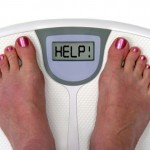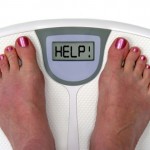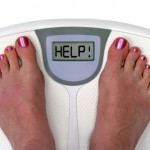 Obesity in children is a serious problem (as it is too in adults) because people who are overweight or obese are more likely to develop various medical problems. The condition can be a prelude to many cases of heart disease, diabetes, and joint problems. In addition to these, obese children may suffer psychologically and socially.
Obesity in children is a serious problem (as it is too in adults) because people who are overweight or obese are more likely to develop various medical problems. The condition can be a prelude to many cases of heart disease, diabetes, and joint problems. In addition to these, obese children may suffer psychologically and socially.
Experts are not in agreement as to what exactly causes child obesity. Some say it may be due to the environment; others point to genetics as the cause. In some cases of child obesity, glandular imbalance is a factor. Often, however, the condition is due to overeating.
Parents have to note that children seem most prone to adding fat cells at three different stages in their lives: 1) in the 3 months prior to birth; 2) in the first 3 years of life; and 3) at the onset of adolescence (from 11 to 16 years old). According to experts, most children learn their eating habits from their parents. This finding may very well explain why children of overweight or obese parents are themselves often overweight.
Heredity as a factor in child obesity
While it is true that child obesity is often caused by overeating, what are the causes of overeating? About 25% of the cases of child obesity can be blamed on heredity. Studies indicate that a child born to overweight parents has about a 90% chance of being overweight or obese.
But what exactly is it about heredity that causes child obesity? In a lot of cases, the child simply inherits a good appetite.
About another 25% of child obesity cases include children who remain fat even when they reduce their food intake. Such children are often referred to as “easy doers” – their organs for digestion work more efficiently than those of an average child. A little food seems to go farther in satisfying the energy requirements than for most children. Children in some of these cases suffer from an abnormality in the endocrine organs, which reduces the rate of the metabolic processes, and thus correspondingly reduces requirement for food.
The remaining 50% of cases of child obesity are victims of the undesirable habit of overeating, which they have inflicted upon themselves. They are normal children who simply enjoy living – they want to eat the food they see, and overeat when there is an abundance of food. These children have become accustomed to high living standards. Rather than thinking about proper nutrition, they center their thoughts on the pleasures of eating.
Child dietary needs
The chances of a child becoming obese can be significantly reduced with proper dietary program, which parents have to be fully aware of. It is during childhood, for instance, that the eating habits are established. Parents are therefore responsible for maintaining a home dietary program as nearly ideal as possible. In this way, their child becomes accustomed to proper nutrition. Eating patterns learned early will guide the child all through life in choosing right foods.
As the child enters the adolescence stage, his appetite becomes greater. This is the period in life when the child goes through tremendous activity and experiences rapid growth. Thus, apart from ample calories to provide energy, he also needs sufficient amount of protein, minerals and vitamins for growth.
Parents have to realize that in the midst of life’s abundance their child is in danger of becoming poorly nourished. This is true particularly in children who are allowed to indulge their appetites and act in accordance with popular customs. For example, they learn to prefer soft drinks to other nutritious beverages (such as fruit juice or milk), and candy to fruits and protein foods.
Overall, the treatment of child obesity consists, to a large extent, of a regulated dietary program. This means maintaining the essential food elements while drastically reducing the number of calories.
Too little or no exercise as a contributing factor
Apart from overeating, overweight or obese children usually exercise too little or not at all. Modernity has significantly lessened the need for physical activity. In fact, even those who used to utilize their muscles a lot at work have become content with pushing buttons or moving levers, allowing machines to do the work.
At home, children no longer do the same amount of physical exertion as their parents probably did when they were young. Today, labor-saving appliances have taken over much of the housekeeping chores that the need for physical exertion in this area has become much reduced. Elsewhere, cars take children to stores or school they used to walk to, and elevators have replaced the stairs as a means for going up even just to the next floor.
Parents with an obese or overweight child must look into their own eating and exercising habits; they then have to discuss the problem with their child, which, in all likelihood, embarrasses him. The family doctor should be able to provide a safe, healthy, nutritious dietary program that will result in gradual weight loss.
It is a must that fads and gross imbalances in the consumption of various kinds of food are avoided. Exercise is an essential method of treating any case of child obesity. Parents should encourage their child to take up a sport or engage in a regular fitness program. As far as losing weight is concerned, doctors say that a reduction of about a couple of pounds in body weight per month is ideal. Parents have to remember to reward their child (in any form other than food of course) if he meets this objective.








